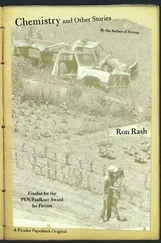Something planned for years, Pemberton now realized. Serena sent telegrams and letters to sources and contacts in Washington and South America. Possible investors as far away as Chicago and Quebec were contacted as well. Serena did all this with a frenetic alacrity, as if her mind had to make up for her body's inactivity. Minutes and hours seemed to move quicker, as if Serena had wrenched time itself into a higher gear. At the end of the second week, Serena insisted Pemberton return to the office where, as efficient as Campbell was, invoices and work orders and payrolls piled up.
With the help of the mild spring, they were on schedule to finish in Cove Creek Valley by October, so an increasing number of workers were being sent east to Jackson County to set down rail lines and raise buildings for the new camp. Harris had his men in Jackson County as well, teams led by geologists making exploratory sorties into cliffs and creek banks. Harris was tight-lipped about what these men searched for, but he'd also bought an adjacent hundred acres that enclosed the upper watershed. These mountains are like the finest ladies, Harris told Pemberton. They won't give you want you want until you spend a lot of time and money on them.
On Pemberton's first Saturday back in the office, a foreman drove over from the saw mill with his payroll ledger. Pemberton set a fountain pen and box of envelopes on his desk, opened the safe and pulled out a tray of one-and five-dollar bills, a cloth bag holding rolls of quarters and dimes and nickels. When Pemberton opened the ledger, he saw a new name printed on the last line. Jacob Ballard Age fifteen. After a few moments, Pemberton raised his eyes to the top of the ledger. He wrote a name on an envelope, placed two fives and two ones inside. But even as he sealed the envelope, Pemberton's eyes drifted to the bottom of the page, unable to shake the sensation of seeing the child's first name in print. He studied the five letters, the way the raised J and b shaped the word to look like a bowl waiting to be filled. Minutes passed until, for the first time since Serena's miscarriage, Pemberton took the photograph album from the bottom drawer. He set it beside the ledger and opened it to the last two pages. The photograph of himself as a two-year-old was on the left, but it was the photograph on the opposite page that held his attention. Pemberton eased the ledger closer so Jacob and the child's photograph lay side by side.
***
THAT afternoon Snipes' crew was cutting on Big Fork Ridge when the main cable's tail block broke free from a stump. Snipes believed that if the skidder crew got a break his men should as well, so they sat on the logs they'd just cut. A large woodpecker glided low overhead, a white lining on the black underwings, its round head tufted a brilliant red. The bird flapped its wide wings once and vanished into the uncut trees.
Henryson looked wistfully toward the woods where the bird had disappeared.
"Wish he'd have dropped off one of them head feathers," he said.
Snipes' crew was a bright-spangled assemblage now, for after Dunbar's death all to varying degrees had adopted the heraldry of their foreman. Henryson stuffed his hatband with goldfinch and jay and cardinal feathers to create a variegated winged halo around his head while Stewart wore green patches on his shoulders like chevrons and a white handkerchief sewn onto his bib, crayoned in its center a smudgy red cross. Ross bore a single patch of orange across his crotch, though an act of derision or belief no one but he knew. Snipes himself had further brightened his wardrobe by replacing his leather bootlaces with orange dynamite wire.
Most of the men rolled cigarettes and smoked while they waited. Snipes took his pipe and glasses from his bib before pulling a section of the Asheville Citizen from his overalls' back pocket. Snipes set the newspaper on his lap and took off his glasses, wiped the inner rims carefully with his handkerchief before perusing the page.
"Says here they still ain't got no suspects in the recent demise of Doctor Cheney," Snipes said. "The high sheriff in Asheville argues that some hobo hanging around the train station done it and then hopped the next freight out of town. He figures they'll likely never catch the perpetrator."
"Didn't the high sheriff find it kindly curious that hobo didn't take the train ticket to Kansas City they found in Doctor Cheney's pocket, nor his billfold for that matter?" Henryson asked. "Or why a hobo would sit the good doctor in a bathroom stall with his tongue cut out and a peppermint in each hand."
"Or figure the fellow who's driving the very car the late doctor used to drive might be the least bit involved?" Ross added.
"No sir," Snipes said. "That's what the law calls immaterial evidence."
Ross raised his head and looked upward at the blue sky, let a slow drift of smoke rise from his pursed mouth before speaking.
"I doubt they'll be looking for any other kind of evidence since the sheriff's on the Pemberton Lumber Company payroll."
"You mean the high sheriff in Asheville, not Sheriff McDowell?" Stewart asked.
"That's right," Ross said.
"I don't think Sheriff McDowell can be bought," Stewart said.
"We'll find out soon enough," Ross replied. "These folks seem to be picking up steam far as their killings. Didn't bother to make this one look like no accident neither, the way they done with Buchanan. They'll be needing every lawman in this state on their payroll at the rate they're going."
"They ain't never got to McDowell before, and we all know they've tried. I don't think they will now," Henryson said with uncharacteristic optimism.
The men paused to listen to a staccato tapping coming from the deeper woods. Henryson cocked his head slightly to better gauge the bird's location, but the tapping ceased and the woods grew silent.
"Got anything new about that park in your paper?" Ross asked Snipes.
"Just that Colonial Townsend did sell his land to the guvment," Snipes said. "The paper gives Townsend and the park folks both a big huzzah for that."
"That's bad news for my brother-in-law," Henryson said, shaking his head and looking west toward Tennessee. "He's been a sawyer for Townsend for nigh on ten years. Him and my sister got four young ones to feed."
"Is he a good worker?" Snipes asked.
"He can handle a axe good as any man I know."
"I'll put in a word for him with Campbell," Snipes said, "but so many folks is perched on them commissary steps now you about have to draw lots for a seat. They's workers already herding at the new camp and it not even open yet."
"Who told you that?" Henryson asked.
"Nobody told me," Snipes said. "I seen it my ownself last Sunday. One of them on the porch steps picked up his axe and said he was headed to Jackson County, and a good dozen men up and followed like he was Moses leading them to the promised land."
"Your brother-in-law don't do no doctoring, does he?" Ross asked Henryson. "Got an opening there."
"No," Henryson replied, "but even if he was I'd as lief have him stick to the logging. At least you've got a chance to dodge a tree or axe blade. I ain't of a mind to say the same of Galloway."
SHE'D BEEN TOLD TO STAY IN BED FOR SIX weeks, but when a month had passed Serena resumed supervising the cutting crews. When she stepped off the front porch, Galloway waited. They went to the stable together and Serena came out on the Arabian, the eagle on its perch. She rode slowly out of camp, Galloway following in his shambling gait, a constant and resolute shadow. The land had been cleared up Rough Fork to Wash Ridge. From a distance, the valley's forests appeared not so much cut down as leveled by some vast glacier. Though the rains had lessened, silt-stalled creeks continued to make traversing the bottomland a precarious business. Men stumbled and slipped, came up cursing and wiping mud from their faces and clothes. Two workers broke bones in the miasma and several more lost tools. A sawyer who'd once logged on the coast said the only difference between the valley and a Charleston County swamp was the absence of cottonmouth moccasins.
Читать дальше












